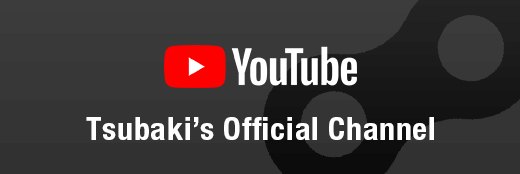Respect for Human Rights
Basic Concept
The Tsubaki Group considers respecting the human rights of all people involved in our business activities to be an important aspect of corporate social responsibility. We have established a Basic Human Rights Policy, which is based on international norms such as the United Nations’ Guiding Principles on Business and Human Rights and the Universal Declaration of Human Rights. We are striving to make this Policy well known and understood in the Tsubaki Group companies in Japan and overseas, and to promote respect for human rights throughout the entire Group.
Basic Human Rights Policy
In practicing TSUBAKI’s Mission stipulated in our corporate philosophy—to advance the “art of moving” beyond expectations—the Tsubaki Group will strive to bring about change through our actions while exceeding society’s expectations, and in doing so, contribute to finding solutions to community issues, as we aim to realize a sustainable society and continuous growth. As a premise to fulfilling TSUBAKI’s Mission, we recognize that the “respect for human rights” of all people who are impacted by the Tsubaki Group’s business activities is an important aspect of our corporate social responsibility. Accordingly, we have formulated the following Basic Human Rights Policy. In accordance with this Policy, we will promote initiatives for the respect of human rights and strive to fulfill our responsibility to respect human rights.
1.Compliance with Laws and Regulations
The Tsubaki Group respects all internationally recognized human rights, including the United Nations International Bill of Human Rights and the International Labour Organization (ILO) Declaration on Fundamental Principles and Rights at Work. We will also strive to advance initiatives for the respect of human rights, in accordance with the United Nations Guiding Principles on Business and Human Rights.
2.Position and Scope of Application
This Policy forms the foundation of the Tsubaki Group’s business activities, together with our corporate philosophy and Basic Policy on Sustainability. This Policy applies to all Tsubaki Group officers and employees, as well as dispatch workers and contracted employees (hereafter, “officers and employees, etc.”) We anticipate that all business partners, including customers and suppliers, will also understand and practice this Policy, and we will continually encourage support of this Policy and move forward with collaborative initiatives.
3.Respect for Human Rights
The Tsubaki Group understands the possibility that our business activities may have a direct or indirect negative impact on human rights. If such a negative impact occurs, we will respond appropriately, and fulfill our responsibility to respect human rights. In the case of inconsistencies with internationally recognized human rights standards and the laws and regulations of countries and regions, we will abide by the laws and regulations, while searching for ways to respect the internationally recognized principles of human rights.
(1)Prohibition of Discrimination and Harassment
We prohibit discrimination based on race, ethnic group, nationality, social status, origin, gender, disability, health status, thoughts and beliefs, religion, sexual orientation, or differences in job type or employment status, etc., as well as harassment that harms the dignity of individuals. We also prohibit discrimination in all aspects of employment, including recruitment, promotion, and wages, and we practice equal opportunity.
(2)Promotion of Diversity
We will respect the diversity of individuals, and provide a work environment where each person can actively work with fairness and impartiality.
(3)Prohibition of Child Labor and Forced Labor
We prohibit the modern slavery system including child labor, human trafficking, and forced labor by violence and debts.
(4) Appropriate Labor Standards
We will abide by the laws and regulations of each country and region, and strive to appropriately manage working hours, ensure sufficient days off from work, and pay a livable wage that allows people to live with dignity.
(5)Provision of a Safe Work Environment
We will abide by the laws and regulations of each country and region, and strive to advance initiatives for occupational health and safety, prevent work-related accidents, and provide a safe, secure, and healthy work environment.
(6) Respect for the Freedom of Association and the Right to Collective Bargaining
We respect workers’ right of freedom of association and the right to collective bargaining.
4.Implementation of Human Rights Due Diligence
The Tsubaki Group will identify any negative impact on human rights, and continually implement due diligence regarding human rights, in accordance with the United Nations Guiding Principles on Business and Human Rights, so as to prevent and mitigate such negative impacts. We will strive to promptly take appropriate and effective action to remedy any direct or indirect negative impacts on human rights that we recognize as resulting from our business activities.
5.Dialogue and Discussion
As a response to any potential or actual negative impacts on human rights, the Tsubaki Group will use expert knowledge on human rights from independent external parties, and engage in dialogue and discussion with relevant stakeholders.
6.Education
The Tsubaki Group will provide appropriate training to the officers and employees, etc. so that this policy is incorporated into all activities of the Group. We will also collaborate with suppliers and other business partners to actively create opportunities for information sharing to advance initiatives on human rights.
7.Information Disclosure
The Tsubaki Group will appropriately disclose information regarding our initiatives to respect human rights based on this Policy, through our website, reports, and other relevant channels.
Formulated on April 1, 2020
Revised on February 1, 2026
* This Policy has been approved by our Sustainability Committee
Promotion System
Guided by the Sustainability Committee, which is chaired by the COO, the Tsubaki Group is promoting initiatives for the respect of human rights throughout the entire Group, based on the Basic Policy on Sustainability and Basic Human Rights Policy. The Sustainability Promotion Department, Human Resources Department, Legal Affairs Department, and departments in charge of procurement are all working together to roll out activities for promoting human rights across the supply chain.
Initiatives
Implementation of Due Diligence Regarding Human Rights
We are implementing human rights due diligence in order to identify human rights risks that concern our businesses, including in the Group’s supply chain.
(1) Applicable to the Tsubaki Group
In FY 2022, we began conducting a self-check survey about human rights and labor, targeting Group companies inside and outside Japan, and in FY 2023, we focused on supporting education and awareness. In the FY 2024 self-check survey, there were no serious points for concern in relation to human rights.
We will continue to support improvement efforts for areas in which it is necessary for each company to develop systems, for example, by promoting understanding, disseminating information, and taking remedial measures regarding respect for human rights.
(2) Applicable to Suppliers
In FY 2023, we began investigating human rights risks in the supply chain, targeting major suppliers in Japan, and it was confirmed that no human rights risks were found which required immediate correction. We subsequently visited two major suppliers which had been targets of the investigation, confirming the present status of initiatives for respecting human rights at the Tsubaki Group and each supplier, and exchanging information about the initiatives.
In FY 2024, the scope of the investigation was extended to include major suppliers of the Group in Japan. For items identified as needing improvement in the human rights risk assessment, we continue to work on improvements in cooperation with the suppliers.
Details of Implementing Human Rights Due Diligence
| The company and Group companies inside and outside Japan | Domestic suppliers | ||
|---|---|---|---|
| FY 2022 | Number of companies responding (response rate) | 32 (100%) | - |
| Incidents of corrective action | 1 | - | |
| FY 2023 | Number of companies responding (response rate) | - | 191 (77.6%) |
| Incidents of corrective action | - | 0 | |
| FY 2024 | Number of companies responding (response rate) | 31 (100%) | 349 (81.7%) |
| Incidents of corrective action | 0 | 0 | |
Setting Up a Consultation Desk and Reporting System for Human Rights-Related Issues
Through the Corporate Ethics Helpline consultation desk that we have set up within and outside the company, we are also responding to consultations on human rights and anonymous reporting on human rights incidents. Moreover, with the assignment of employees to engage in consultations on any topic, we are capable of handling not only risks related to compliance with laws and regulations but also routine matters. We will continue to advance the development of a positive work environment.
Human Rights-Related Education and Permeation
To ensure that nobody involved in its businesses is subject to any form of discrimination or harassment that violates individual dignity including on the grounds of race/ethnicity/nationality, social or economic status, gender, disability or health condition, personal beliefs, or employment type/status, the Tsubaki Group is implementing measures to enhance ethics awareness among all employees.
(1) Corporate Ethics Awareness Month
We have designated February of every year as Corporate Ethics Awareness Month while conducting activities designed to promote strict adherence to laws and rules in the Group’s countries of operation. In FY 2024, we conducted e-learning about respect for human rights on the theme of “Creating a better working environment.” All employees of the Group in Japan were eligible to participate.
(2) Training on Human Rights and Harassment
We are implementing training on human rights and harassment in new employee training and training for employees who are promoted.
The Tsubaki Group’s Basic Human Rights Policy has been established based on international human rights standards and the United Nations’ Guiding Principles on Business and Human Rights. Through our human rights-related training for employees, we have established an awareness that companies have a responsibility to promote appropriate initiatives to address human rights risks and the respect of human rights, and that addressing human rights-related issues with sincerity is linked to raising corporate value. In addition to these initiatives, in FY 2024, we welcomed an outside director as a lecturer to conduct training aimed at management.
(3) Provision of Human Rights Learning Materials to Group Companies and Suppliers
As a way of supporting awareness, we provided domestic Group companies and major suppliers with materials relating to business and human rights, thereby sharing our understanding of corporate responsibility for human rights violations in the supply chain and the importance of human rights due diligence. We also introduced human rights representatives from Group companies inside and outside Japan to an e-learning system provided by the United Nations Global Compact Academy, and we are enhancing the promotion and permeation of understanding human rights.
Planning and Participation in Initiatives
As a part of our expression of support and approval of the United Nations Global Compact, since FY 2022 we have been participating in human rights due diligence (HRDD) workshops and human rights education workshops sponsored by the Global Compact Network Japan (GCNJ). Through training and group work activities, the participants learned about positive examples of initiatives for respecting human rights and exchanged information with each other.
Additionally, we are also participating in the B+HR (Business and Human Rights) Academy, sponsored by the United Nations Development Programme (UNDP) together with the Japanese Government.


